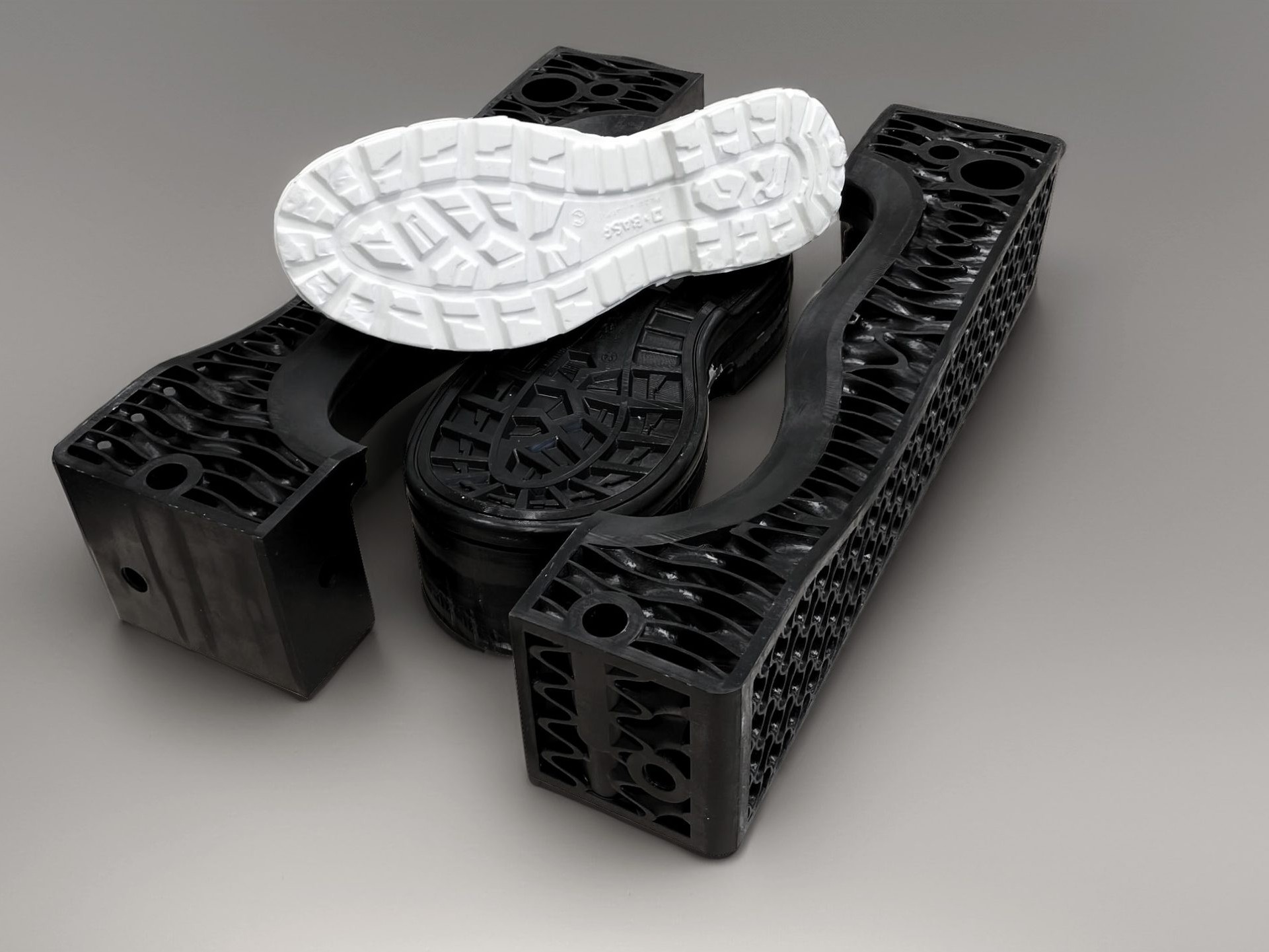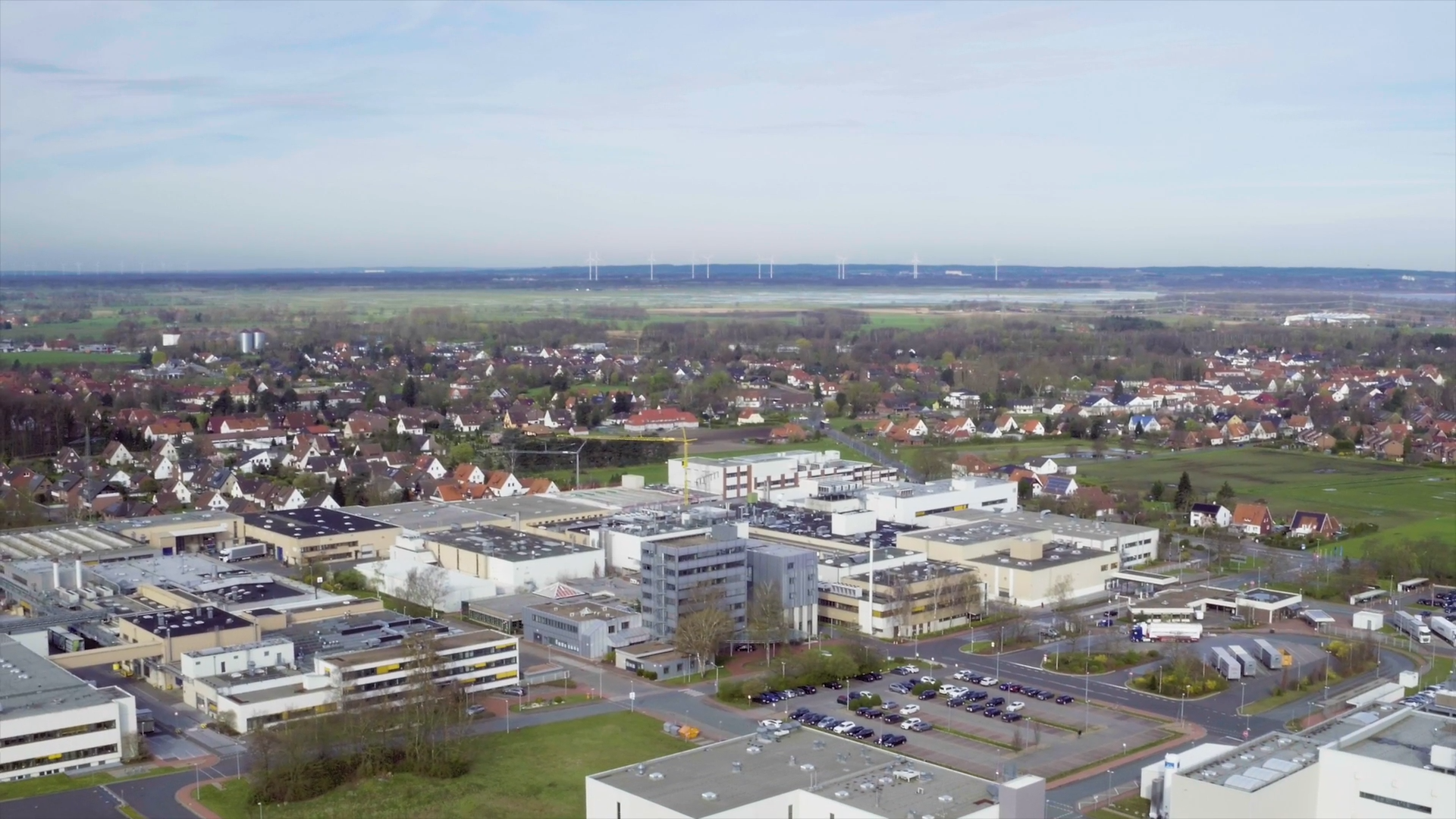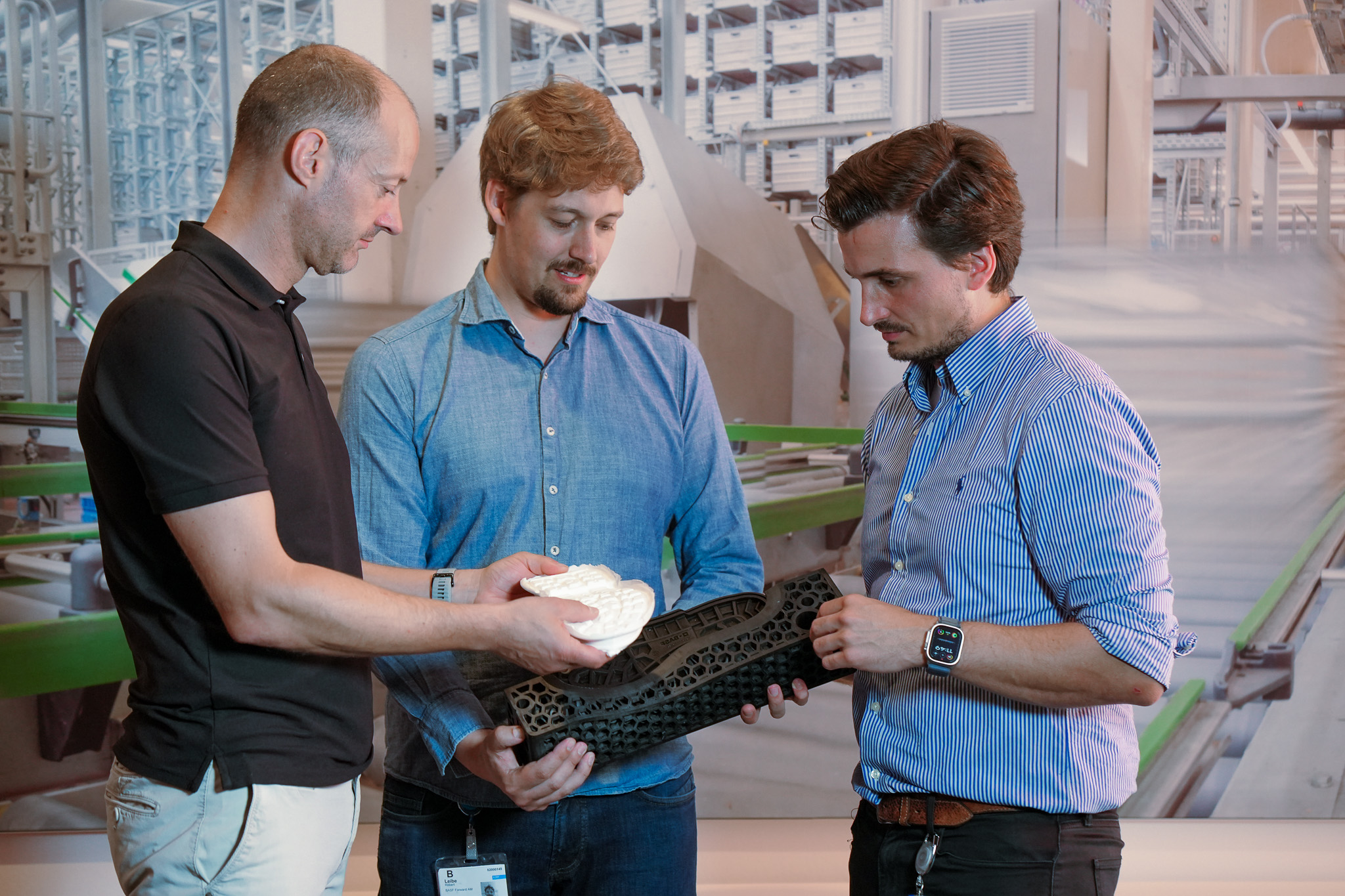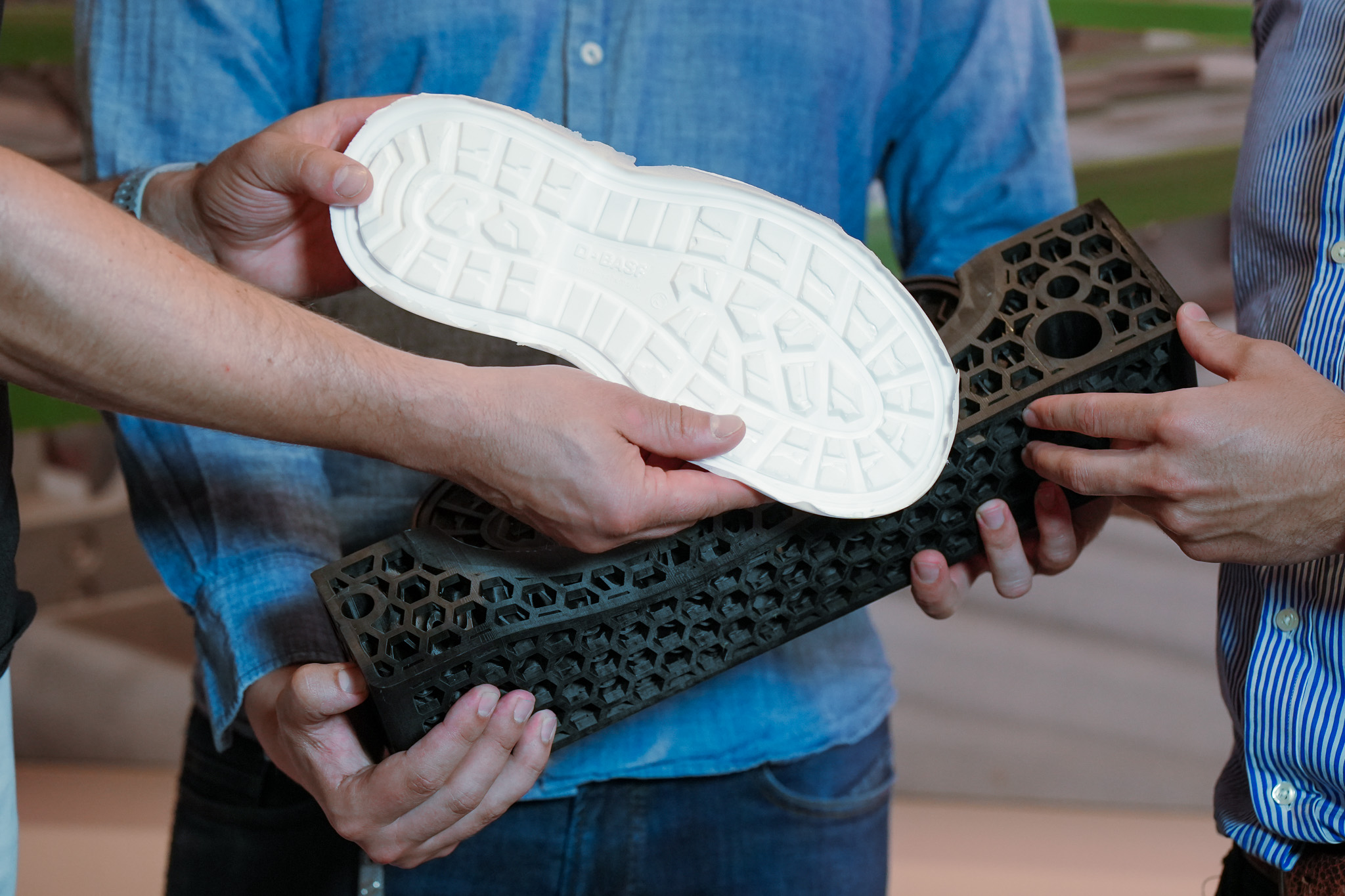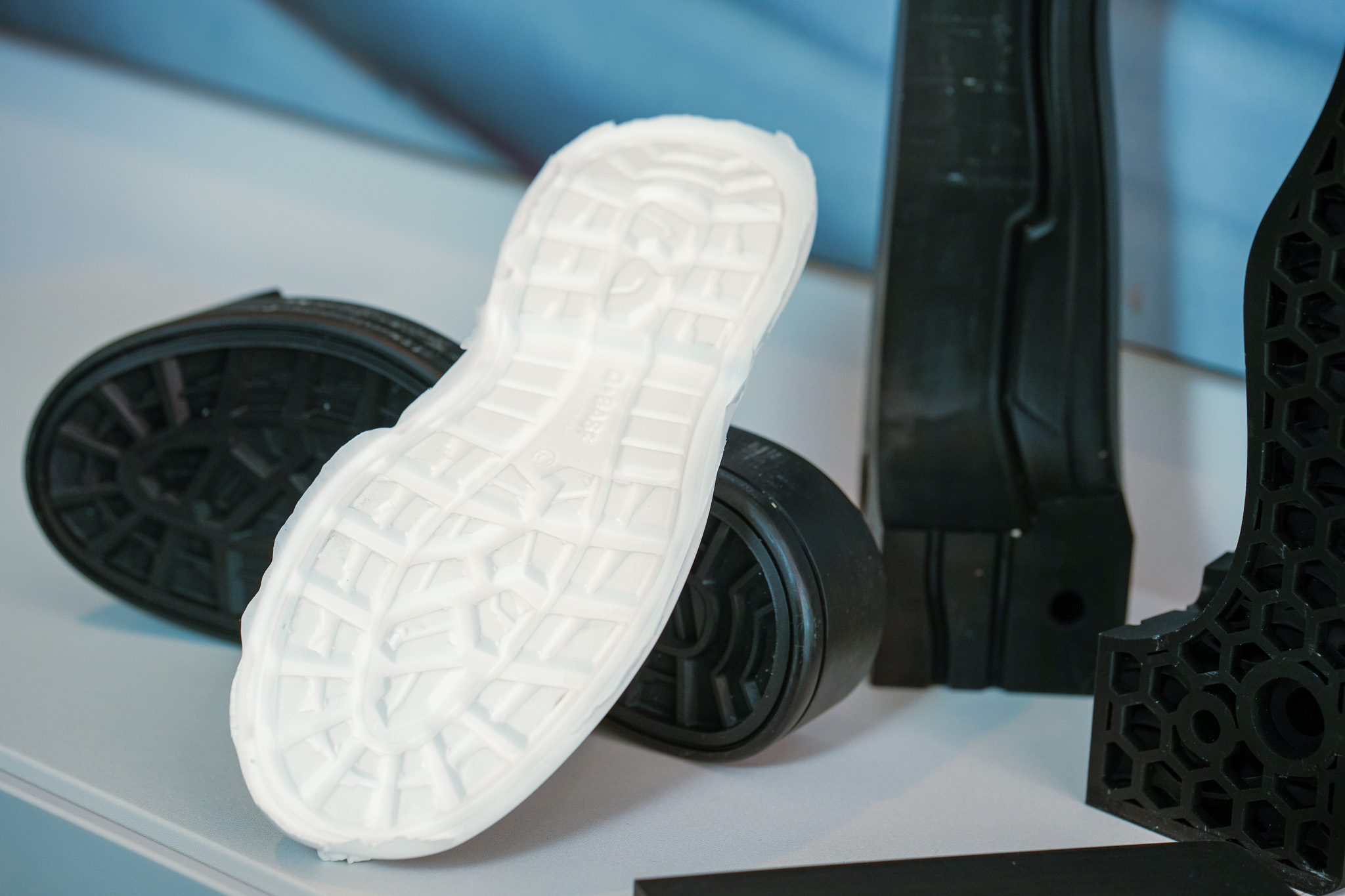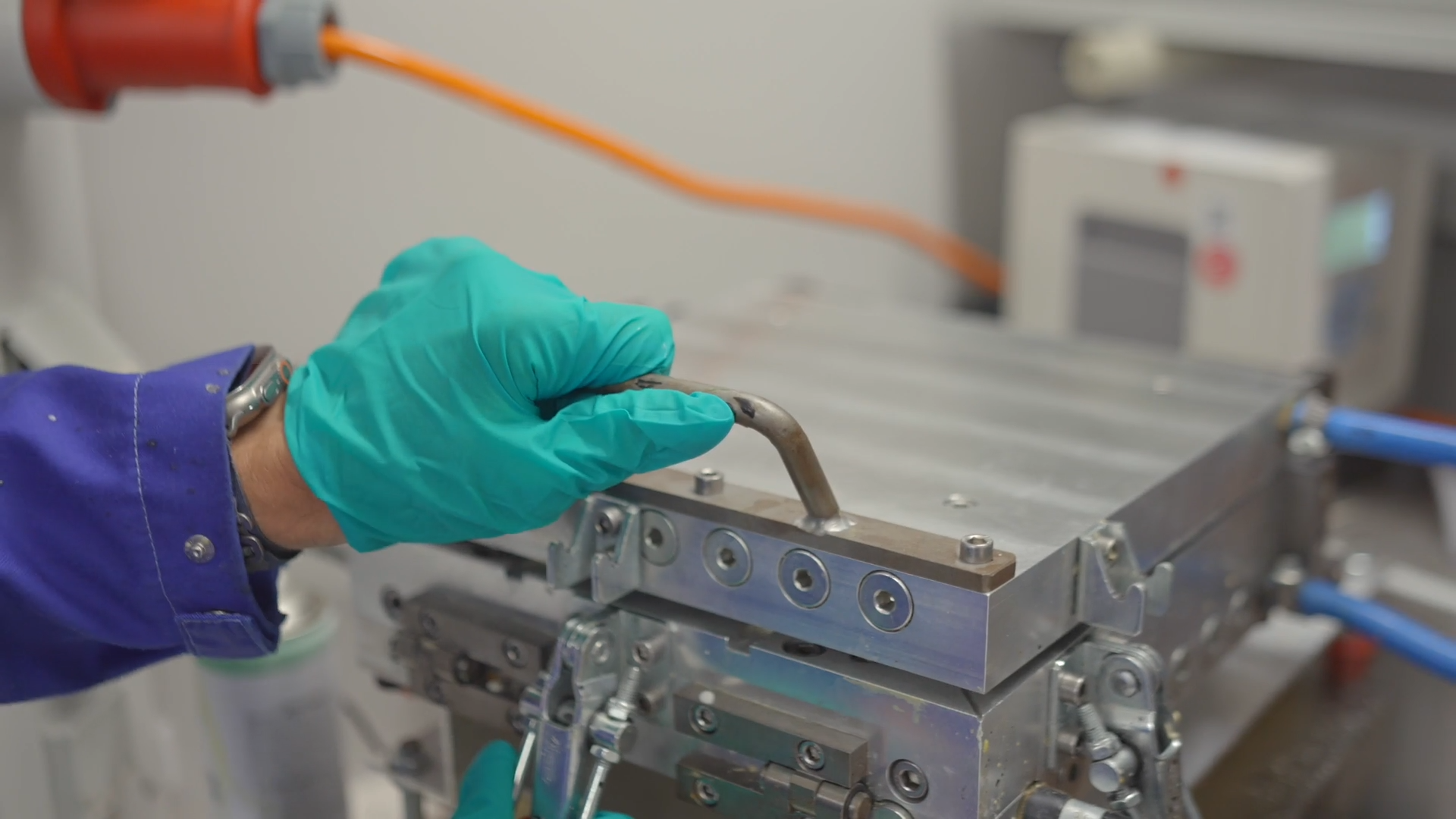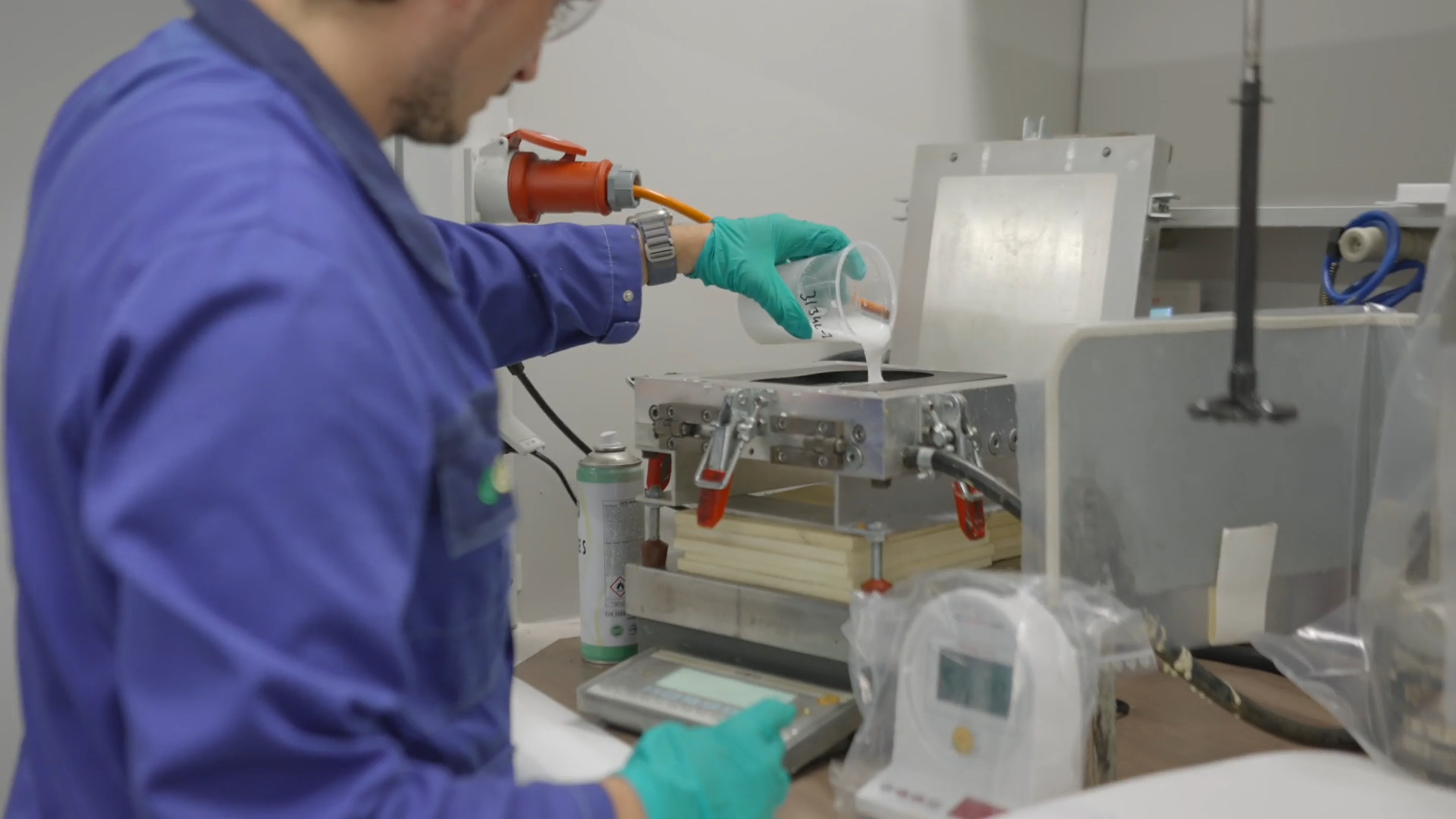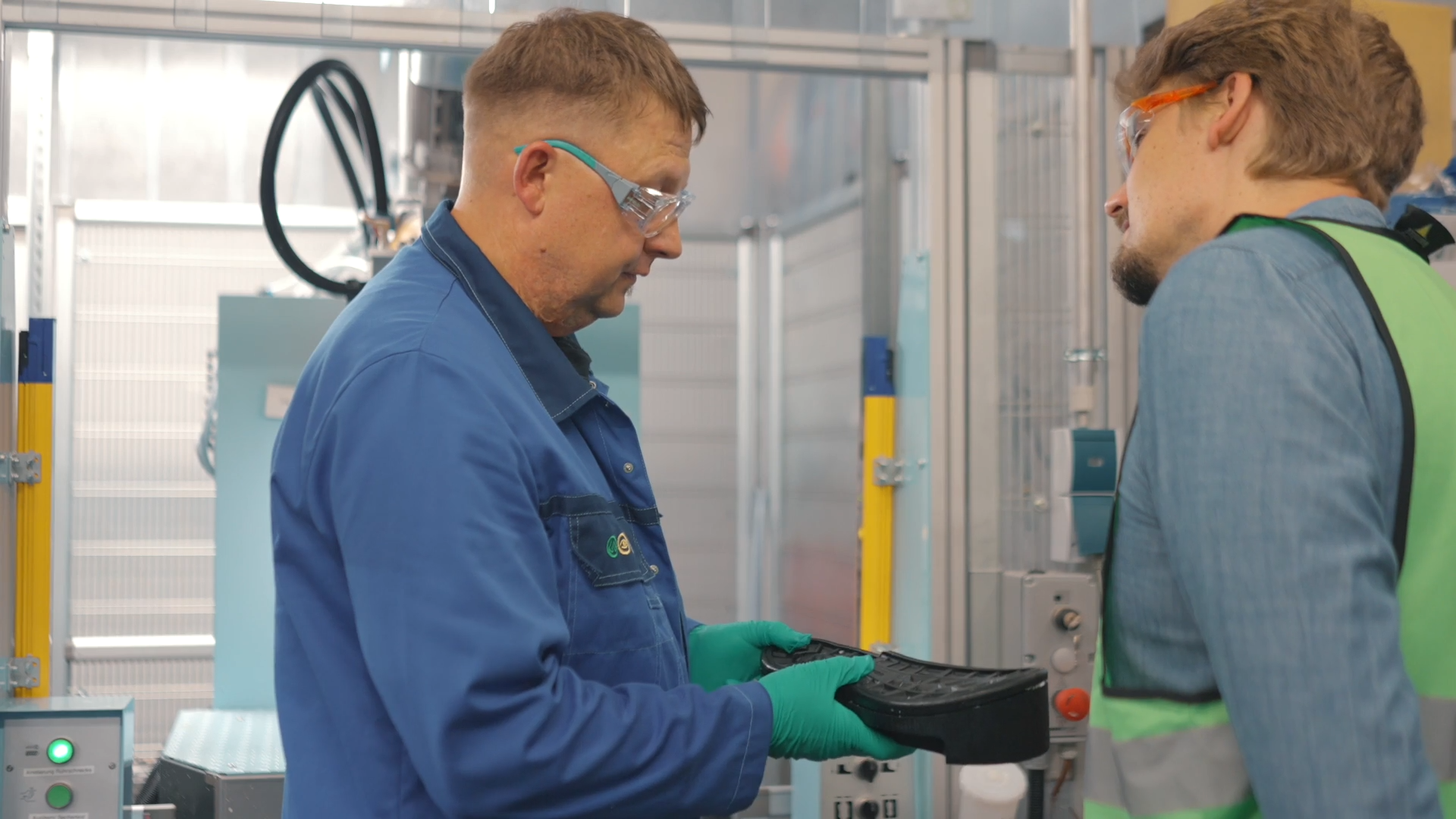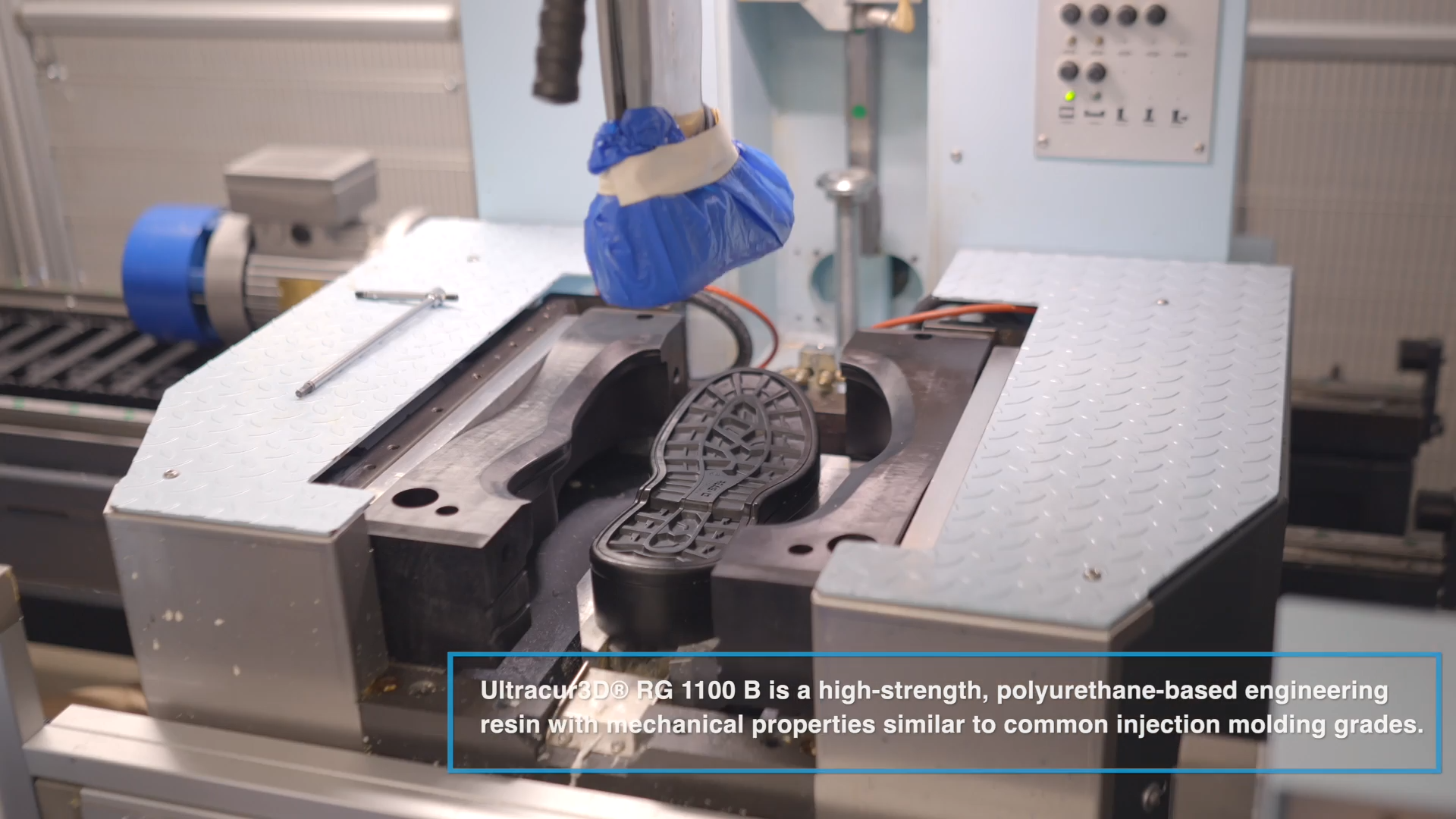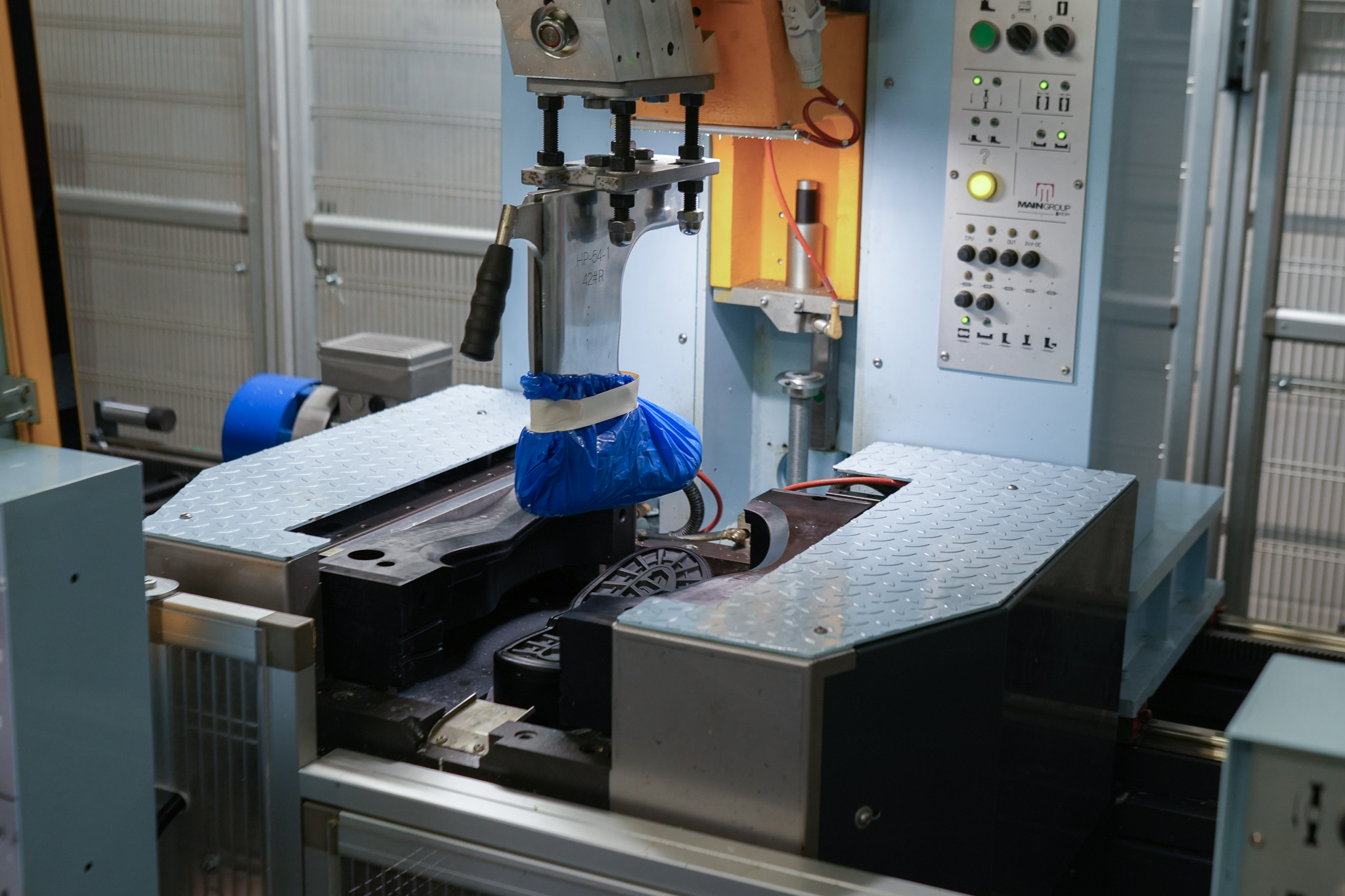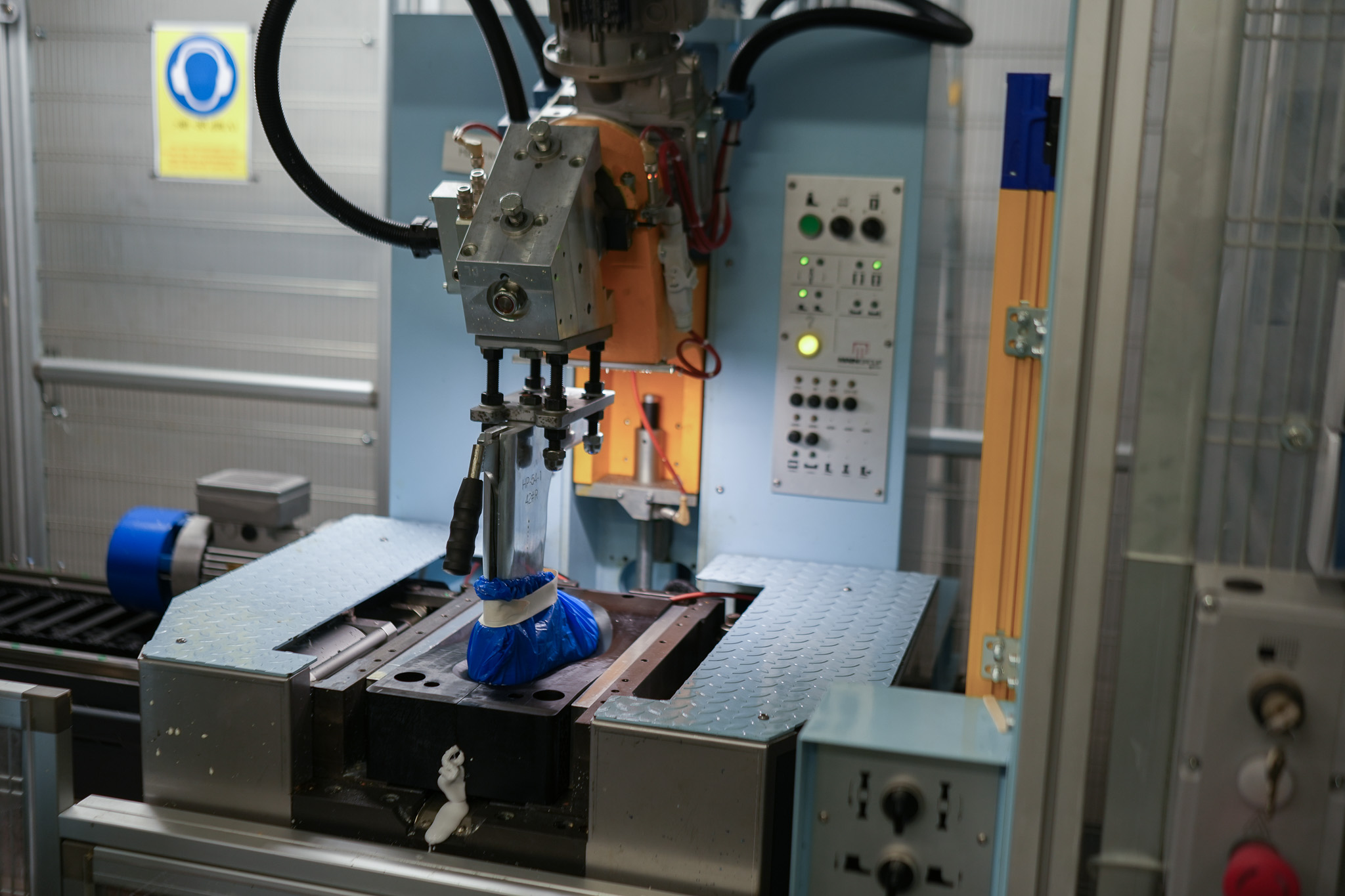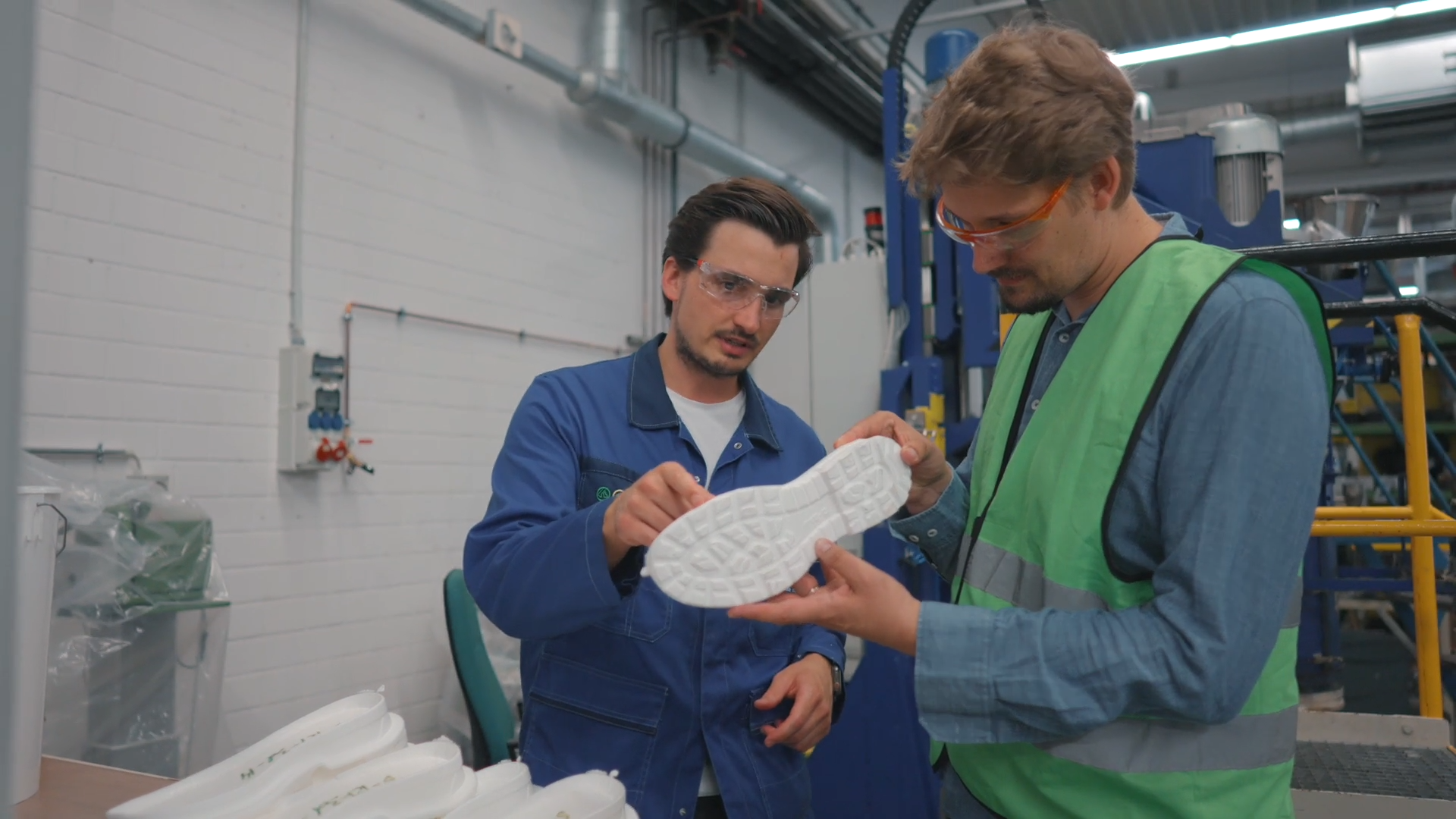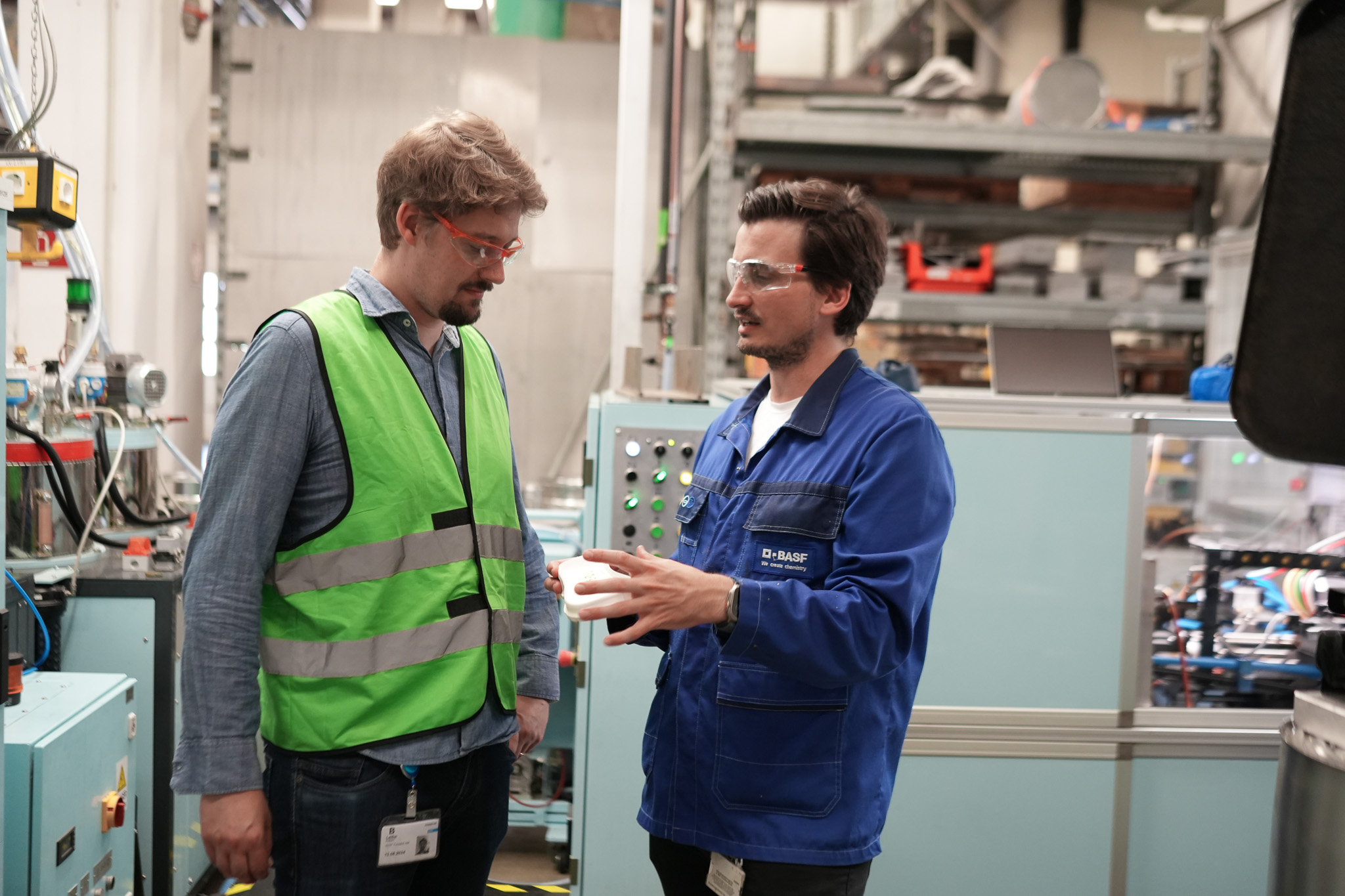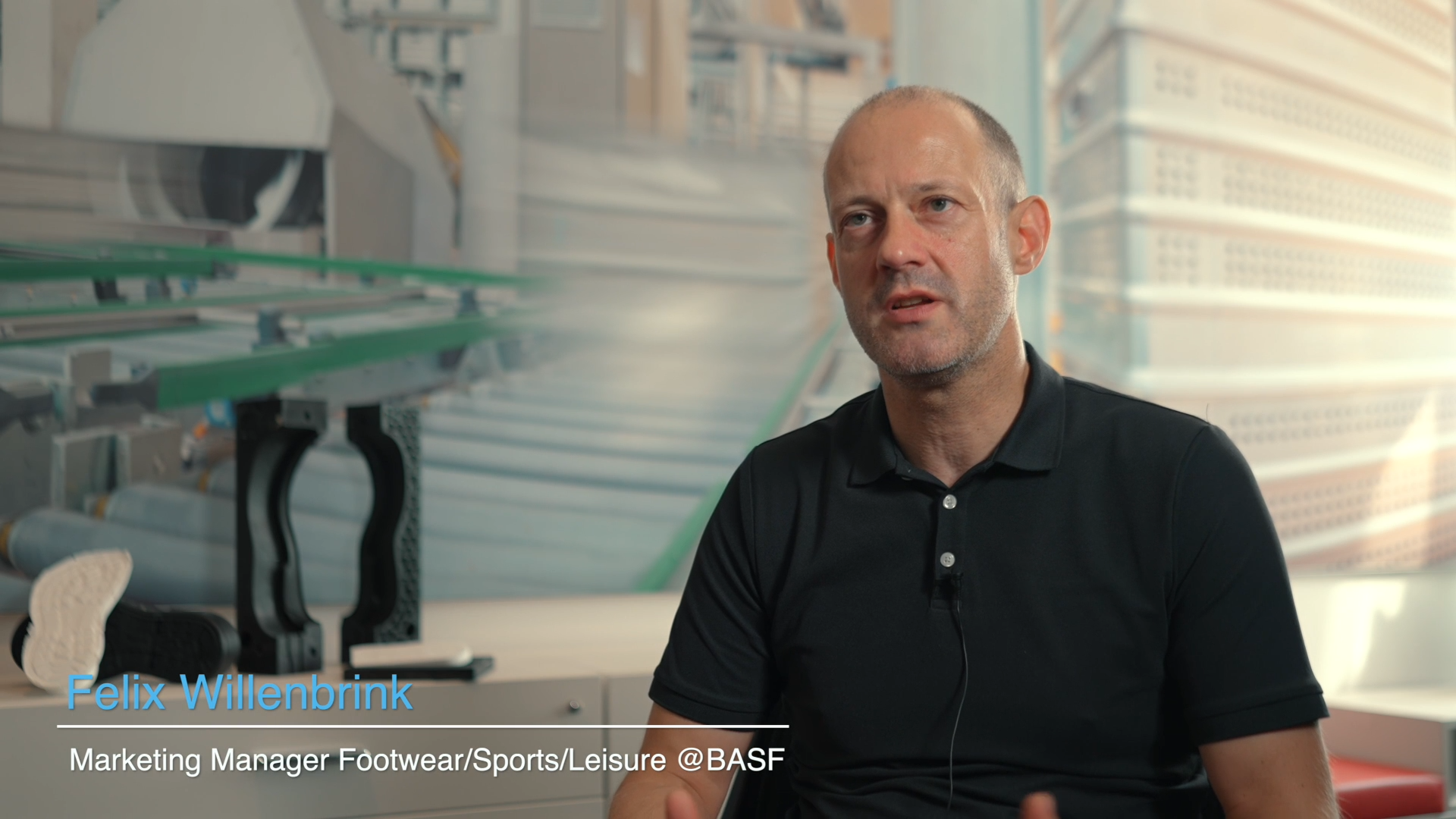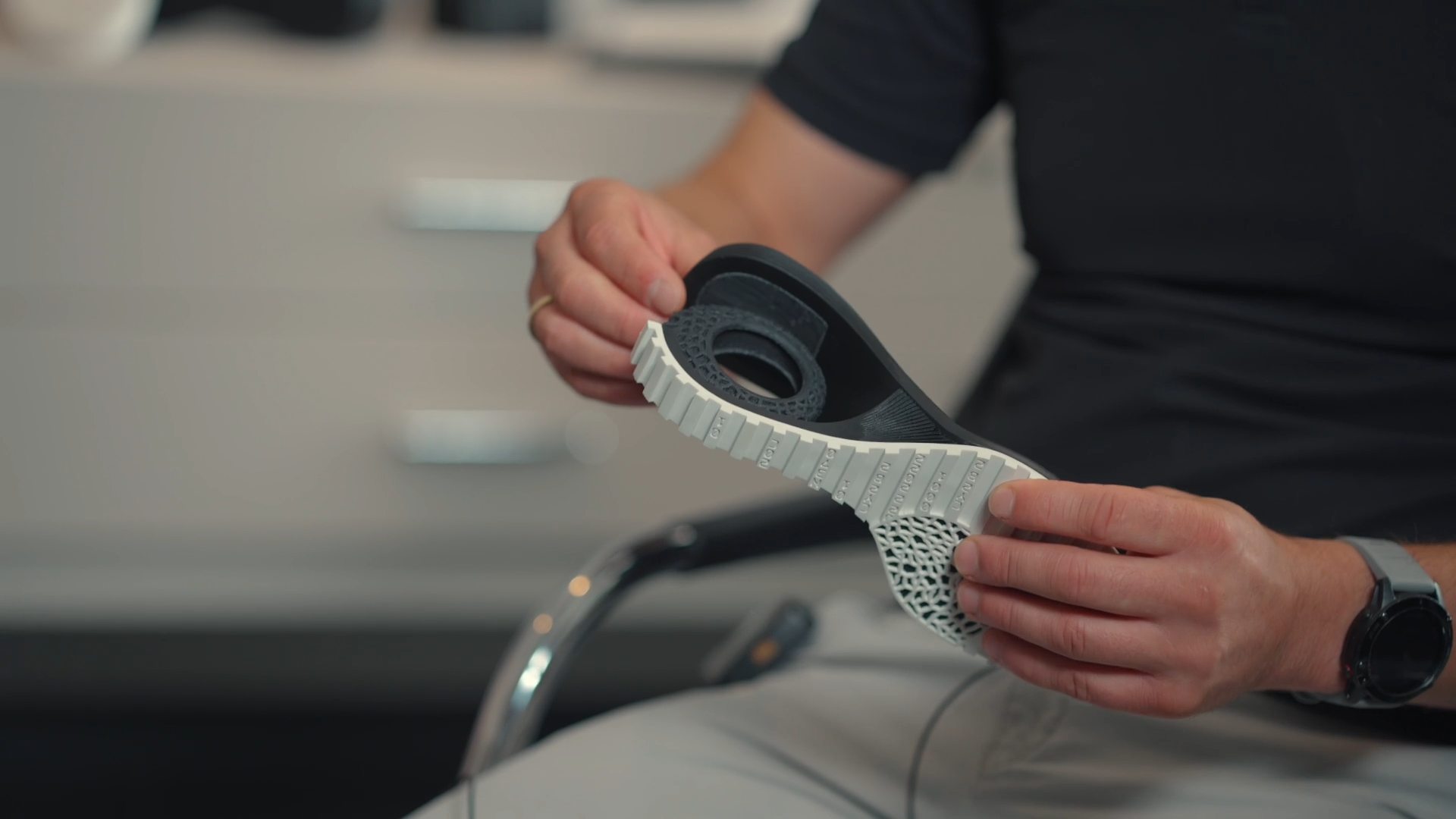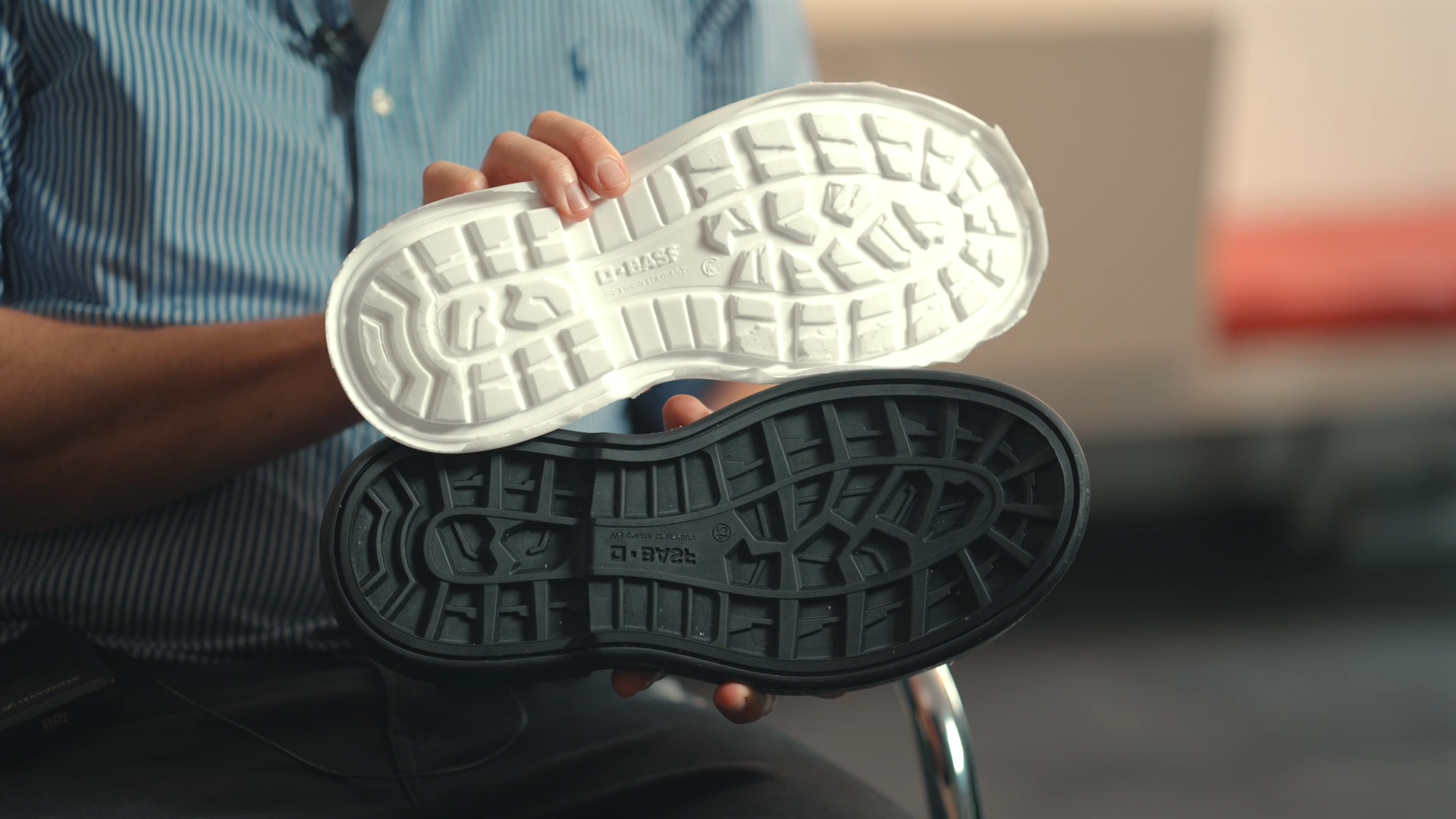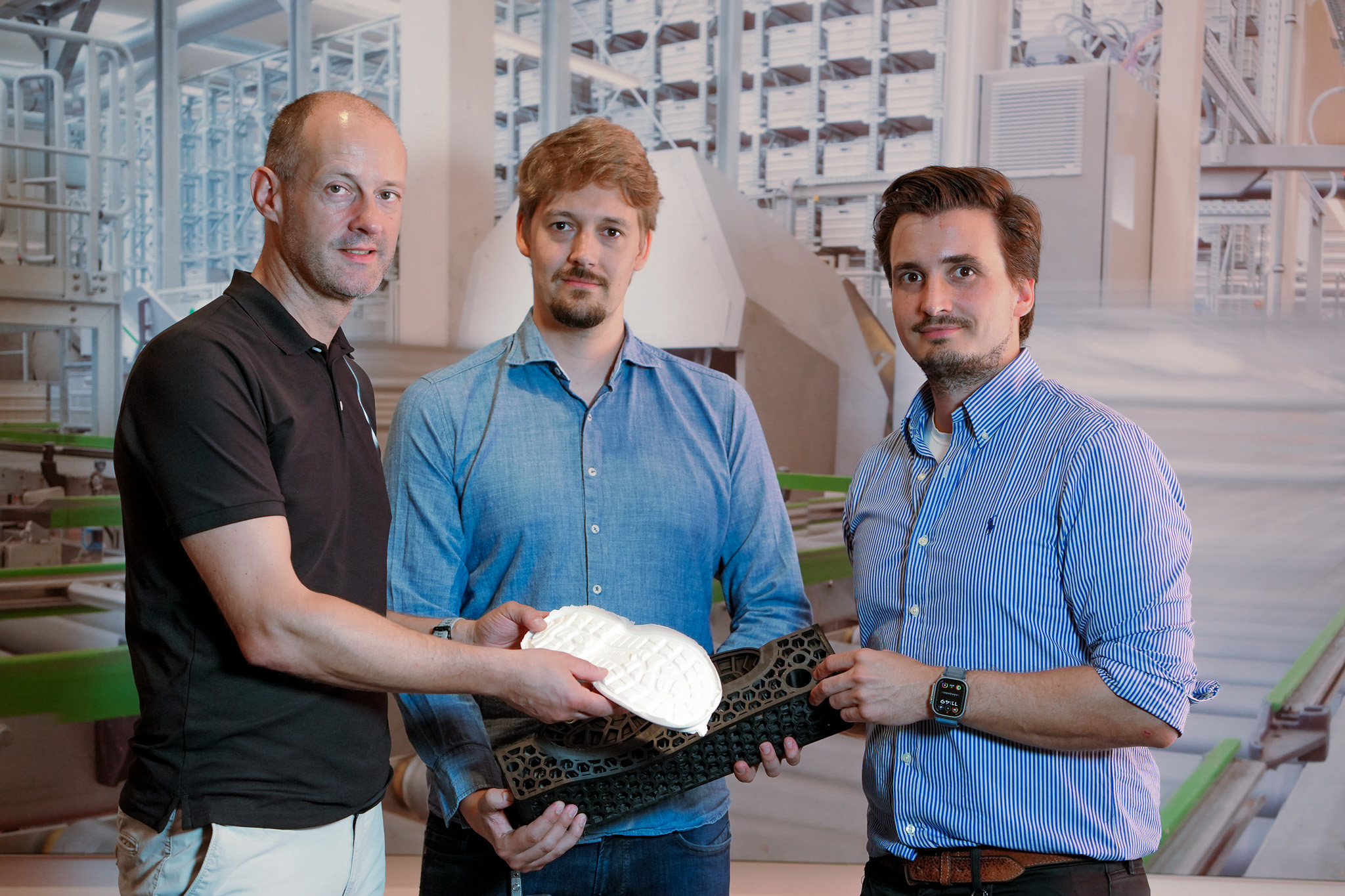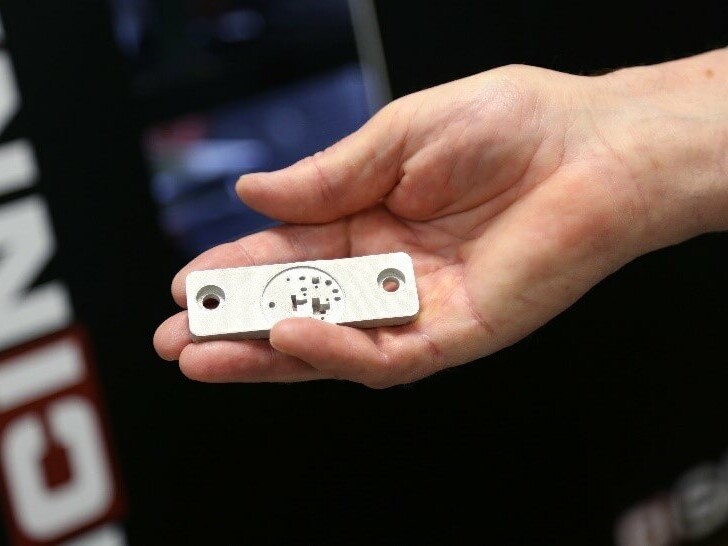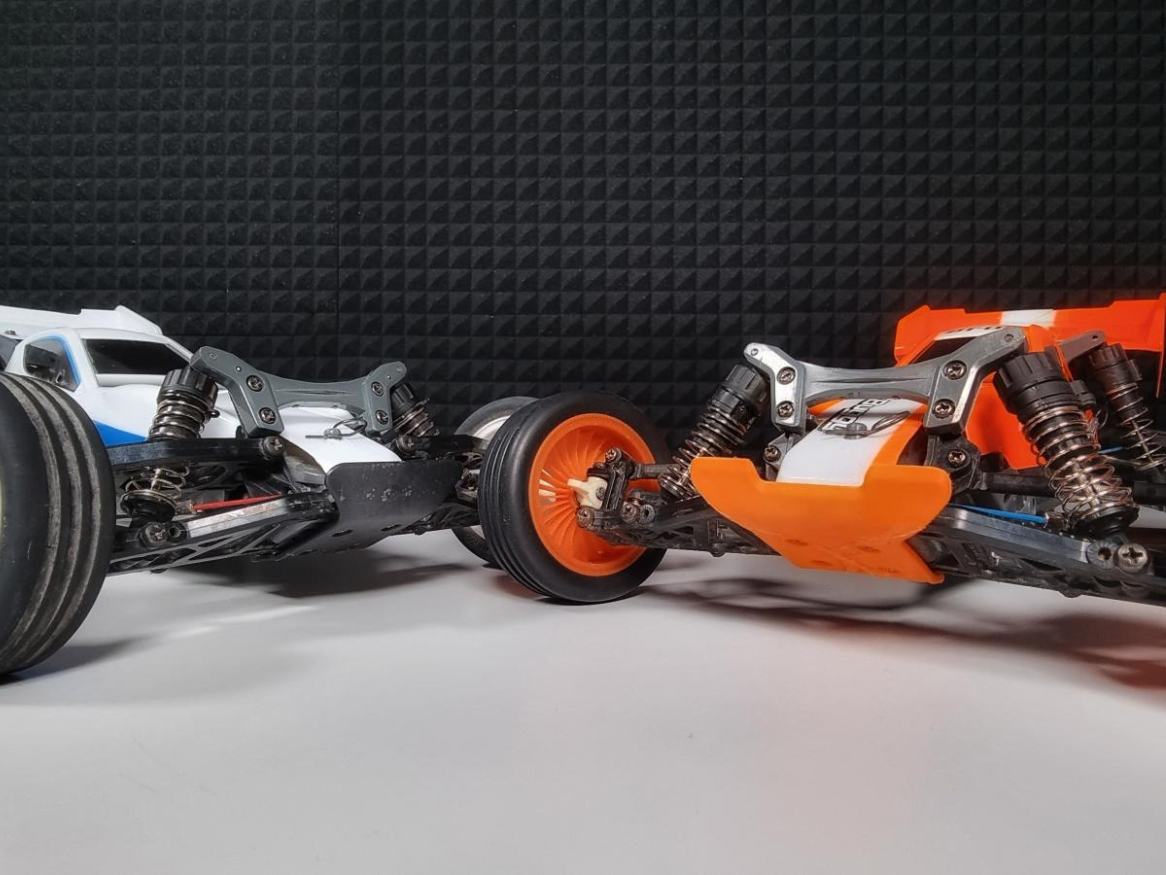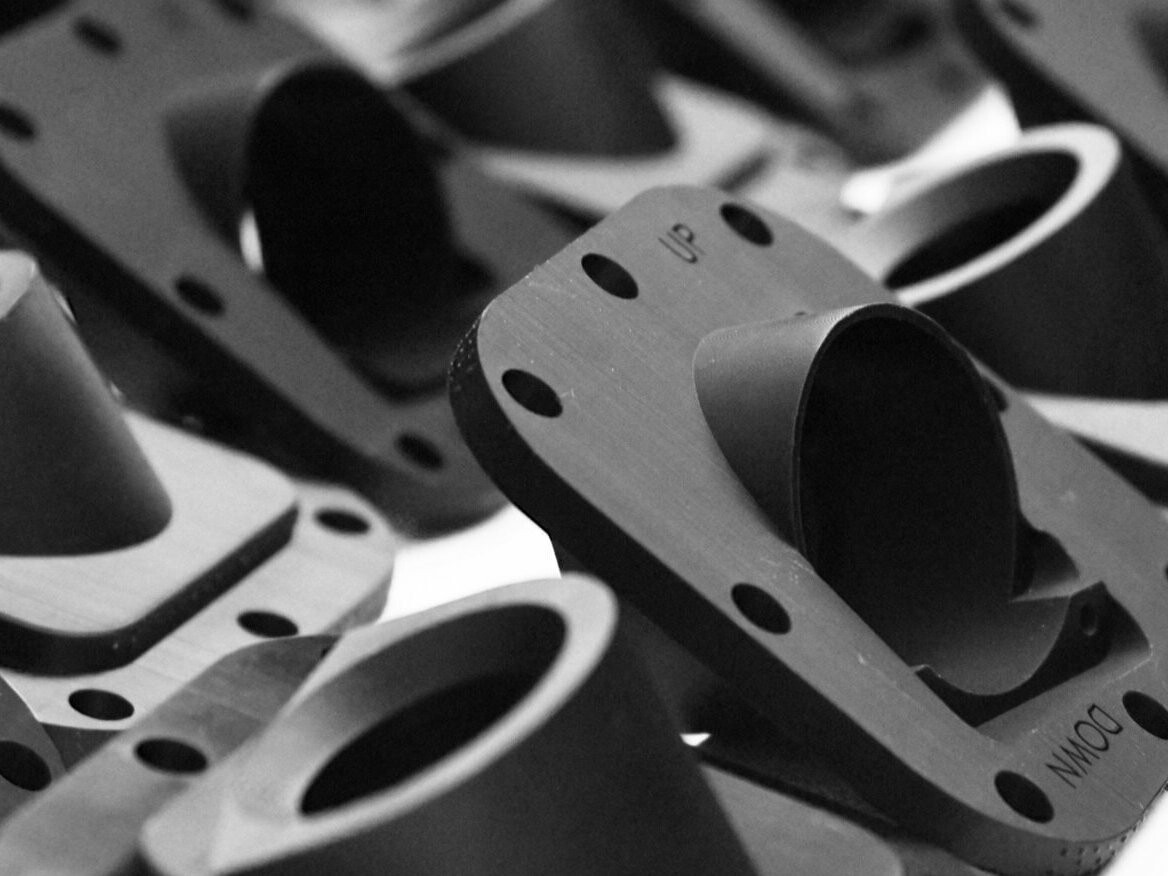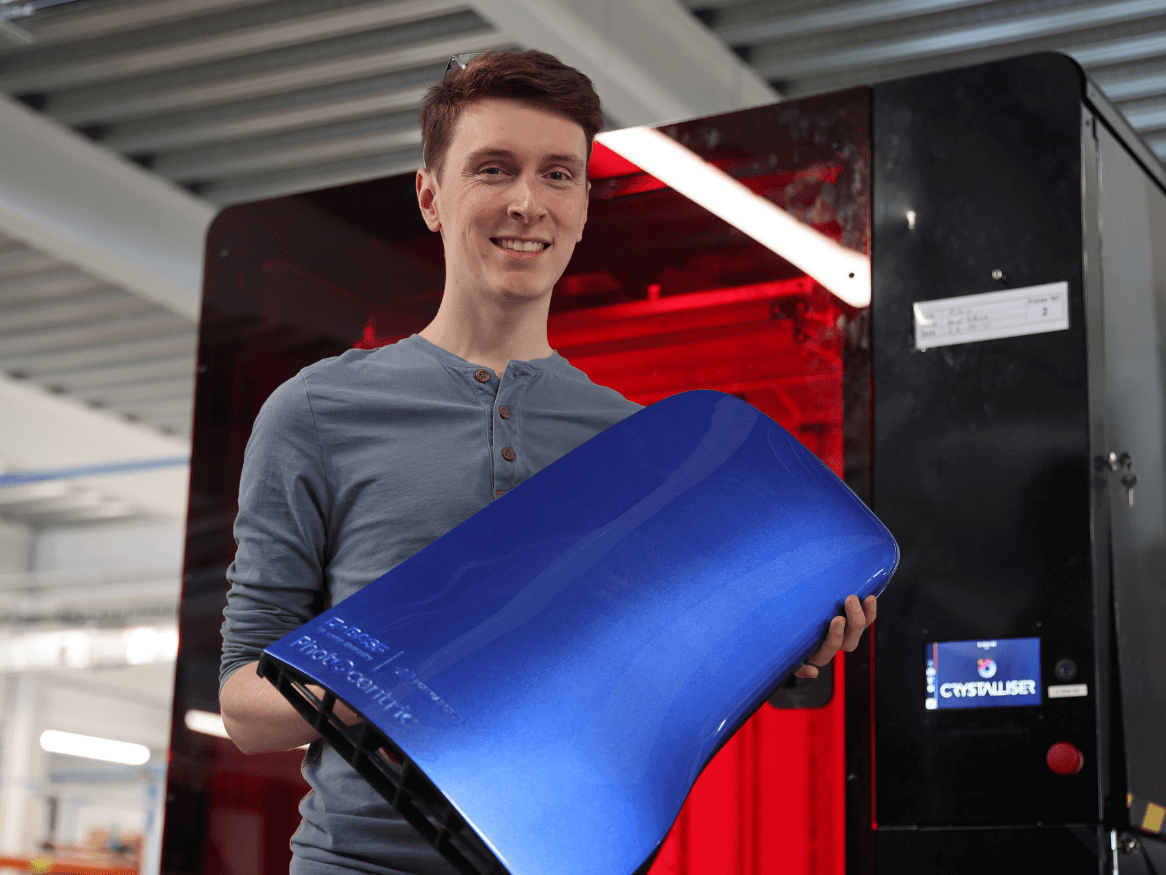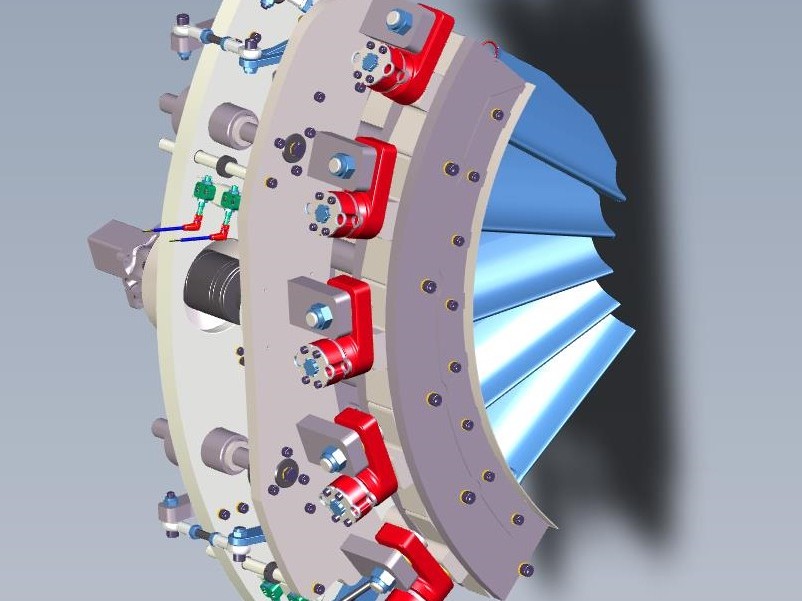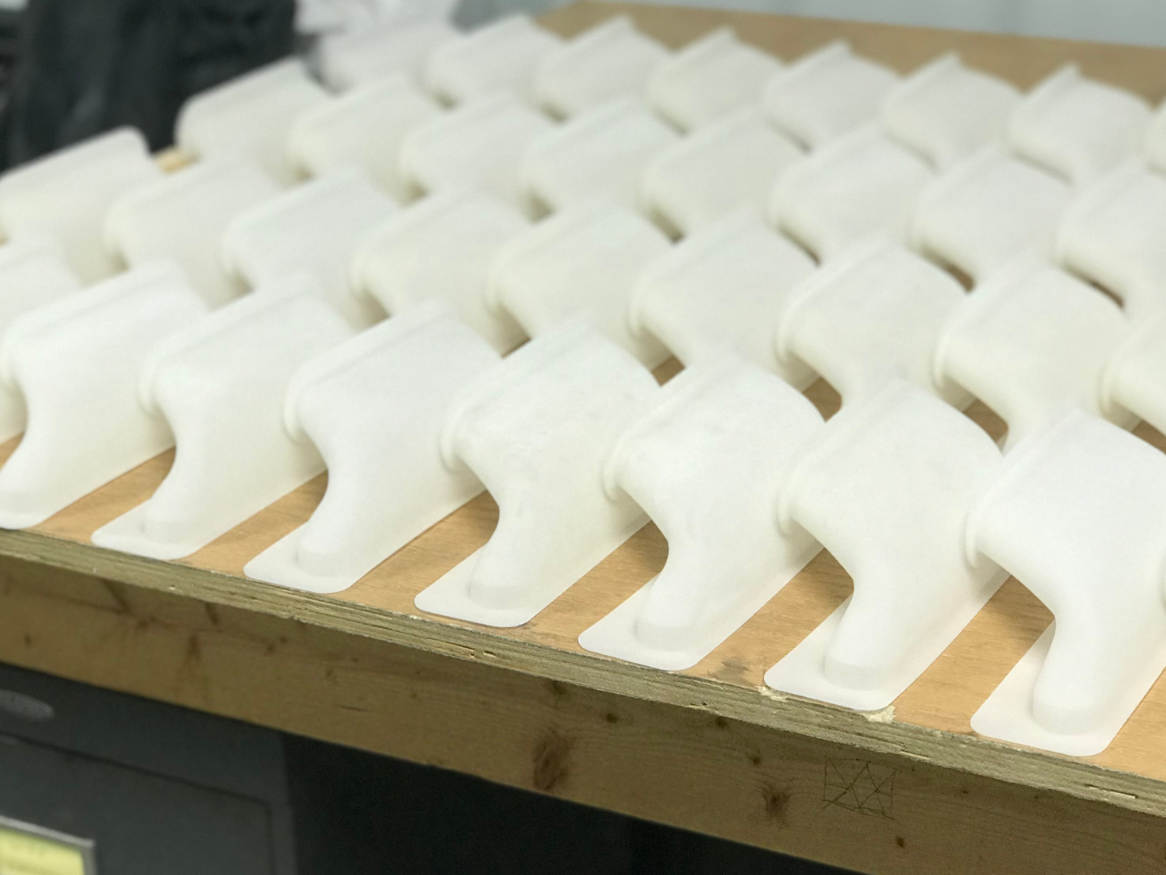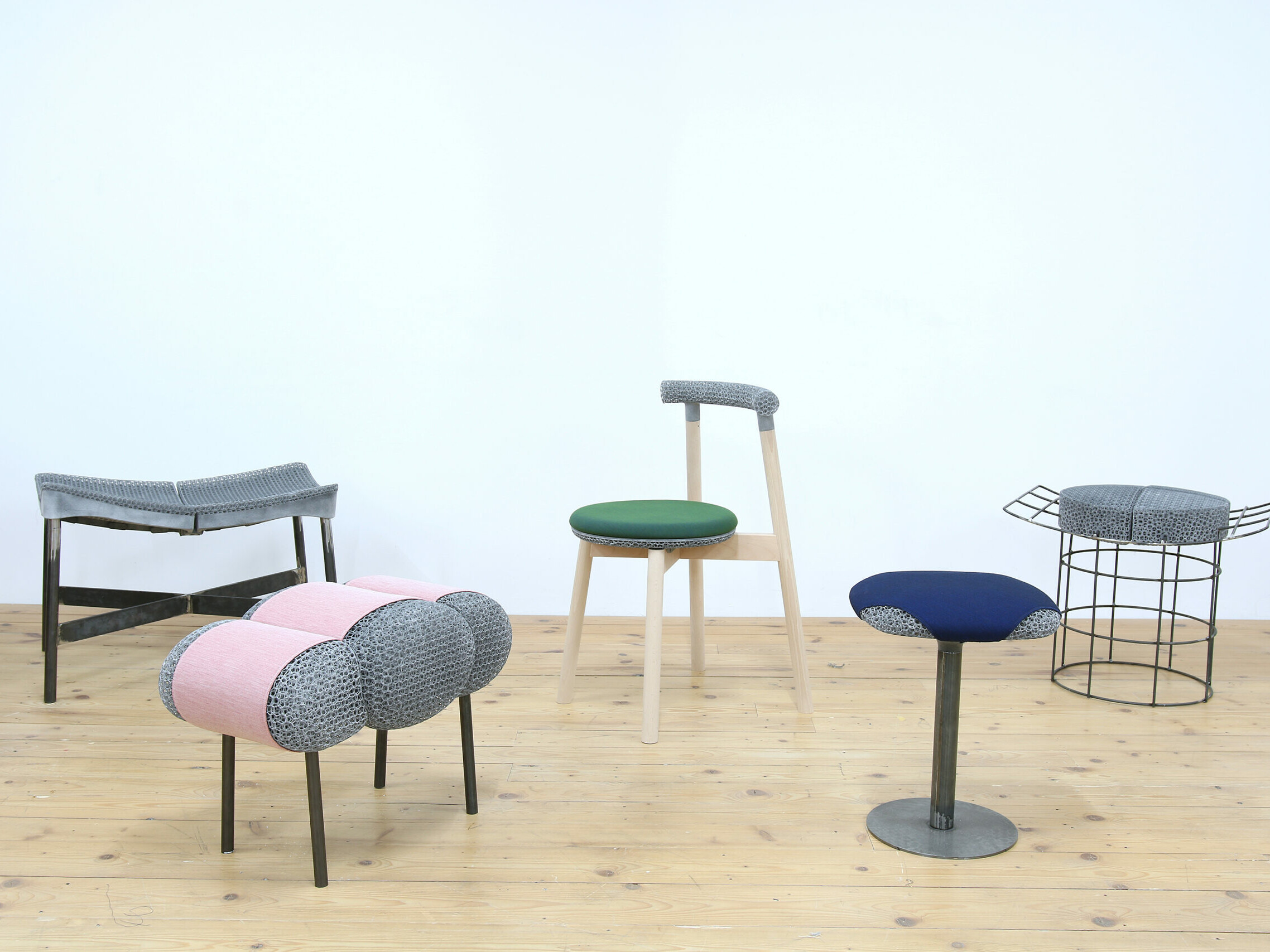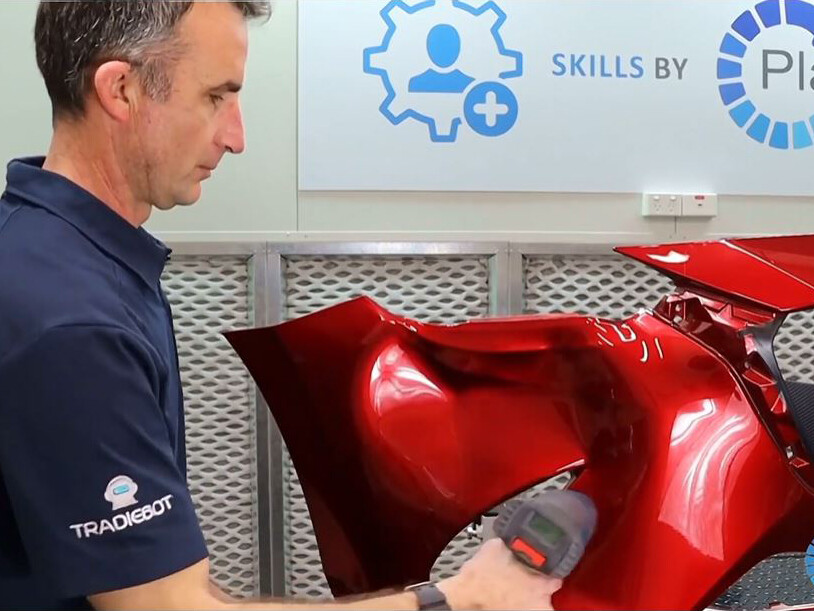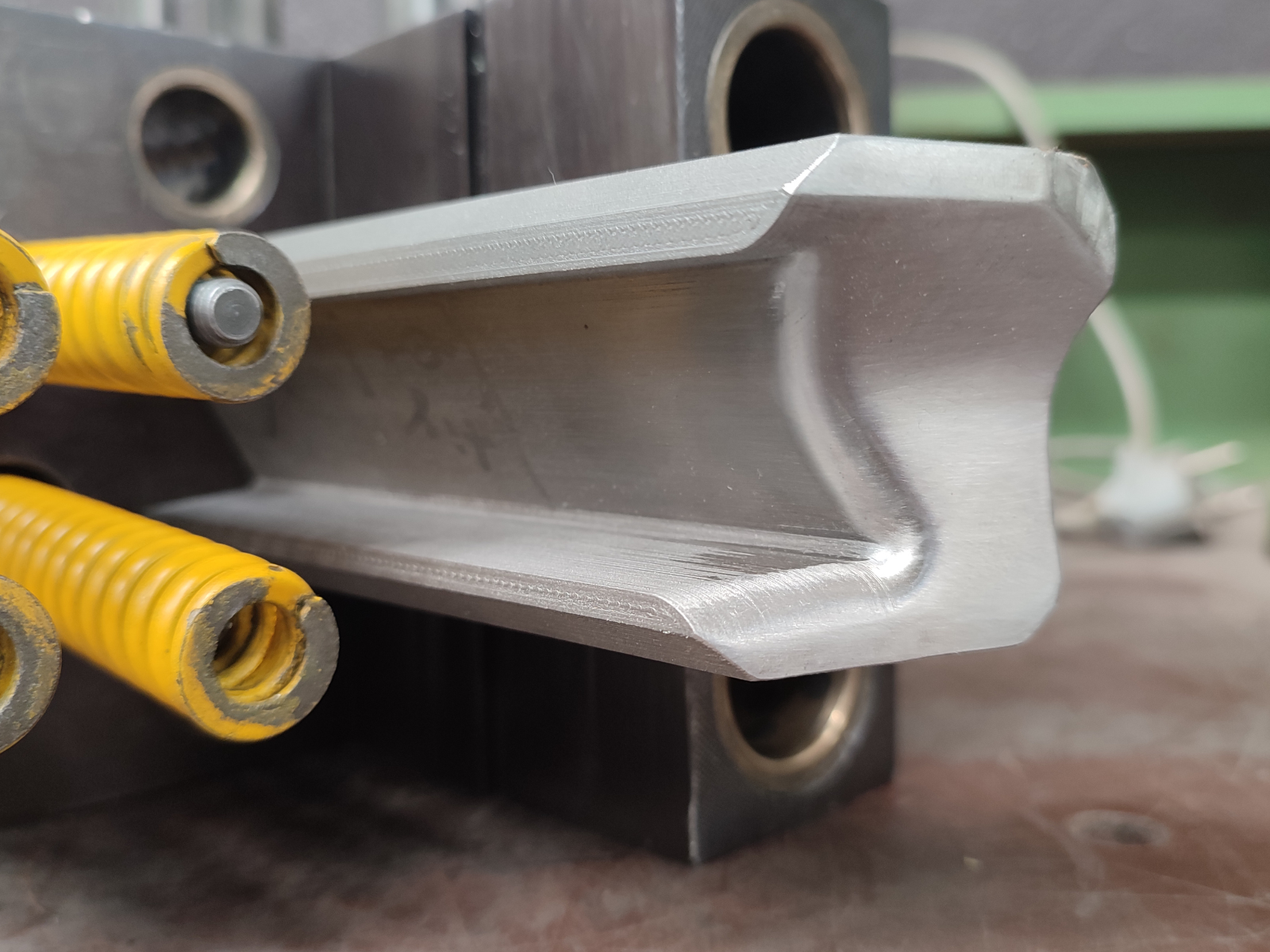Accelerating Footwear Innovation with 3D-Printed Molds
Rapid Prototyping with 3D-Printed Polyurethane Molds using Ultracur3D® RG 1100 Black
Forward AM, in collaboration with BASF Polyurethanes, has successfully piloted its innovative molding solution to accelerate footwear manufacturing with 3D printed polyurethane molds using Ultracur3D® RG 1100 B. This advanced rapid prototyping approach significantly shortens mold production time from weeks to just days, facilitating quicker design iterations while substantially lowering costs.
Project Breakdown
Industry & Application
Footwear Industry, Consumer & Sportswear Industry
Solution & Material
Forward AM, in collaboration with BASF Polyurethanes, introduced 3D-printed prototyping molds using Ultracur3D® RG 1100 B, a rigid polyurethane-based resin. This innovative approach significantly reduces mold production time from weeks to days, while maintaining the strength and durability needed for high-performance footwear.
Why Forward AM ?
Forward AM combines innovative 3D printing technology with BASF Polyurethanes’ material expertise, enabling rapid prototyping and optimal performance. This empowers footwear brands to develop new products more efficiently and at a quicker pace, enabling them to better respond to the fast-paced nature of the industry and the rapidly shifting consumer preferences.
BASF Polyurethanes – Advancing Footwear Production with Innovation
For over 60 years, BASF Polyurethanes has been a global leader in developing polyurethane (PU) solutions, providing lightweight, durable, and flexible materials for various industries. In footwear, PU has become essential for creating high-performance soles and cushioning systems due to its strength, comfort, and versatility. Traditionally used for both compact and foam forms, PU continues to push the boundaries of footwear design and manufacturing, enabling innovations that reduce weight while enhancing durability and comfort.
As the footwear market demands faster production cycles and customizable designs, BASF Polyurethanes is exploring new opportunities to meet these needs through advanced manufacturing techniques. A recent proof of concept with Forward AM showcases how PU can be used in tandem with 3D printing technologies to revolutionize the industry.
The Challenge: Time-Consuming and Costly Mold Production
The footwear industry is fast-paced, requiring manufacturers to quickly respond to market trends and customer demands. Traditionally, molds for shoe soles are crafted from aluminum, which is not only costly to make but can also take up to eight weeks to produce. The cost of raw materials, specialized machinery, and skilled labor required to fabricate aluminum molds drive up production costs significantly.
The prolonged timeline and high cost for producing these molds can restrict a company’s ability to adapt to rapidly shifting consumer preferences. This lack of agility can hinder footwear brands from capitalizing on emerging trends and quickly providing innovative products to meet evolving market demands.
Recognizing these challenges, BASF Polyurethanes and Forward AM sought to find a way to reduce the time and cost of mold production while maintaining high-quality standards for PU footwear soles. They saw this as an opportunity to offer an innovative solution to their customers, enabling faster prototyping and production processes.
The Solution
To address this challenge, BASF Polyurethanes teamed up with Forward AM to explore the potential of 3D-printed molds using Ultracur3D® RG 1100 B, a rigid polyurethane-based resin with exceptional stiffness, temperature resistance, and durability. This material, comparable to traditional injection molding grades, is ideal for creating molds that can withstand the demands of footwear manufacturing.
The collaboration demonstrated that by using 3D printing, PU molds could be produced in a fraction of the time – often in just a few days rather than weeks – allowing for faster prototyping and greater design flexibility. The molds, printed with an internal structure to reduce material use by 40%, were not only lightweight but also highly durable, withstanding the high pressures and temperatures required for polyurethane injection molding.
The Result: Faster Time-to-Market and Enhanced Innovation
“For the future, I see additive manufacturing going hand-in-hand with the material development of polyurethanes, supporting fully automated footwear production and moving towards individualization.”
Felix Willenbrink, Marketing Manager Footwear/Sports/Leisure at BASF Polyurethanes
The use of 3D-printed molds with Ultracur3D® RG 1100 B enables BASF Polyurethanes to make significant improvements in several key areas:
- Lead Time Reduction
- Cost Efficiency
- Flexibility and Customization
- Durability and Precision
BASF Polyurethanes is now able to significantly reduce mold production time from 8 weeks to just a few days by utilizing 3D-printed molds. This rapid turnaround facilitates faster prototyping, testing, and iteration, enabling the company to respond quickly to customer needs driven by the fast-paced footwear market.
The adoption of 3D printing in the prototyping process leads to substantial reductions in mold creation costs, allowing BASF to produce multiple prototypes at a fraction of the previous cost, promoting rapid testing and fostering innovation. Additionally, 3D printing enables easy modification and customization of mold designs, enhancing agility in the footwear development process.
Despite the advantages of reduced costs and faster production times, the 3D-printed molds maintain the necessary durability for polyurethane foaming. By utilizing Ultracur3D® RG 1100 B, BASF ensures that each mold delivers reliable, repeatable results with high precision, meeting the rigorous demands of top-notch footwear manufacturing.
This collaboration with Forward AM showcased how Ultracur3D® RG 1100 B can not only speed up the production process but also boost innovation by enabling manufacturers to experiment with new designs quickly and efficiently.
- For more technical insights, read our comprehensive guide: “Elevate Rapid Tooling to the Next Level: Full Guide to Polyurethane Molds with Ultracur3D® RG 1100 B / xPRO1100-Black.”
- For more information on this rigid material with exceptional stiffness and temperature resistance, check out our product page at: Ultracur3D® RG 1100 – BASF FORWARD AM
Share this page
Next Steps
Get in touch
Do you have questions about our materials, technologies or services? Get in touch now!
